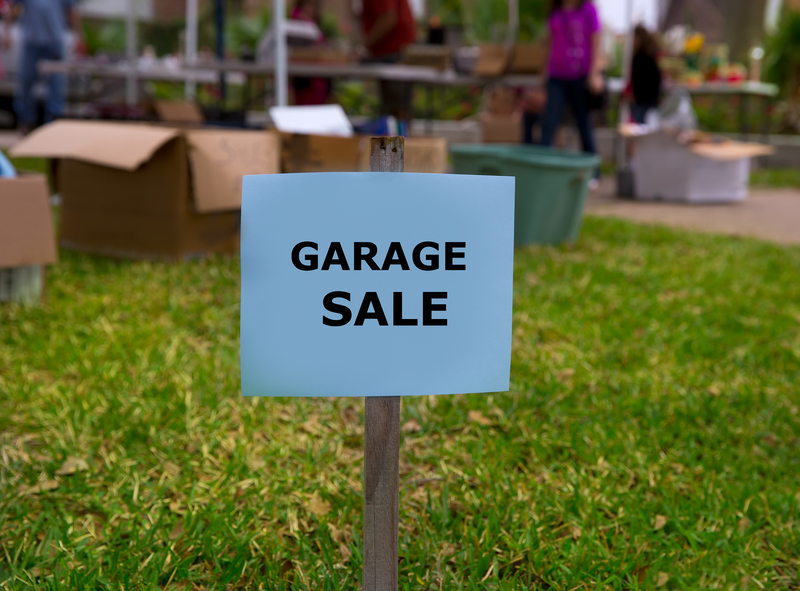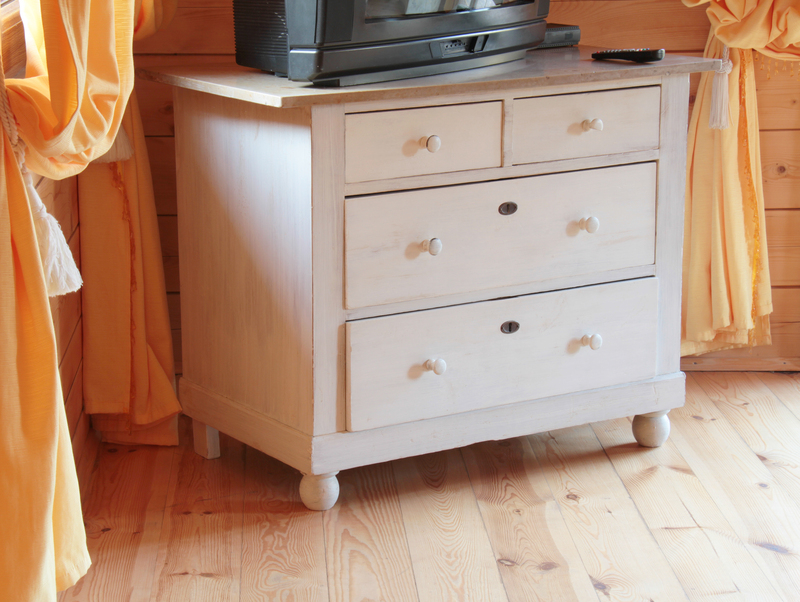Avoiding Pitfalls: Skip Hire Dos and Don'ts Explained
Skip hire is an essential solution for managing waste on construction sites, home renovation projects, and landscaping jobs. However, hiring a skip can lead to unnecessary hassles if you are not aware of the best practices and regulations. In this comprehensive guide, we explain the dos and don'ts of skip hire, so you stay compliant with local laws, maximise the value for your money, and keep your project moving smoothly.
Understanding Skip Hire: What You Need to Know
A skip is a large open-topped waste container designed for loading onto a special type of lorry. Whether clearing a house, renovating a bathroom, or handling commercial construction debris, knowing how to properly hire a skip saves time, money, and effort.
- Skip sizes: Options include mini, midi, builder's, and large roll-on-roll-off skips.
- Waste types: Not all skips allow all types of waste. Understanding what you can or cannot load is crucial.
- Permits: Certain locations and types of skips require local permits.
Why Get a Skip?
Skip hire is a quick and convenient solution for:
- Removing large volumes of waste
- Keeping work sites tidy and safe
- Complying with environmental standards
But without the right approach, this seemingly simple service can come with pitfalls. Here's how to avoid them.

The Dos of Skip Hire
1. Choose the Right Skip Size
Selecting the appropriate skip size is a critical first step. An undersized skip means extra trips, added cost, and logistical delays. Conversely, an oversized skip is a waste of money. Estimate your waste volume as accurately as possible:
- Mini skips (2-3 yards): Ideal for small home clean-ups.
- Midi skips (4-6 yards): Suitable for bathroom and kitchen renovations.
- Builder's skips (6-8 yards): Perfect for larger home improvement projects.
- Large skips (10-16 yards): Designed for bulky waste and light construction material.
Tip: Speak with your skip hire provider if you are unsure. They can help you estimate based on the type and volume of waste.
2. Check Local Regulations
Regulations vary from one council to another. Never overlook the legal requirements related to skip placement, as illegally placed skips can result in hefty fines.
- Do you need a roadside skip? Check if you need a permit.
- Are there restrictions on waste types in your area?
- Is night-time reflective marking or lighting required?
3. Prepare the Drop-off Location
Plan where your skip will go. Proper site preparation allows for easy loading and pick-up. Ensure access is wide enough for the lorry, the ground is stable, and the skip will not block roads or driveways.
- Clear vehicles and obstacles from the area.
- Avoid soft or sloping grounds that may hinder pick-up.
- Notify neighbours if the skip will be near shared properties.
4. Know What You Can and Can't Put in the Skip
While skips are versatile, they cannot accept all types of waste. Local regulations and waste processing rules apply. Typically allowed:
- Soil, bricks, and concrete
- Wood, metals, and plastics
- Furniture and garden waste (except for prohibited items)
Prohibited items vary but often include:
- Electrical appliances (fridges, TVs, computers)
- Hazardous materials (asbestos, paint cans, solvents, batteries)
- Liquids and tyres
__When in doubt, ask your skip provider for a list of banned items.__
5. Fill the Skip Correctly
Avoid overfilling your skip. Skips have clear fill lines for safety and compliance. Anything higher than the rim can lead to dangerous transportation and might result in extra charges or a refusal to collect.
- Distribute weight evenly to avoid instability.
- Break down larger items to maximise space.
- Never "top up" the skip after the scheduled collection date.
The Don'ts of Skip Hire
1. Don't Guess the Size to Save Money
Choosing a skip that's too small in an attempt to save money usually backfires. Overfilled skips are illegal to transport, and you will need to order an extra skip or remove excess yourself. Always go a size larger if you are uncertain about waste volume.
2. Don't Place the Skip Illegally
Never place a skip on the public highway or pavement without a valid permit. Councils have strict regulations, and unauthorised skips can result in costly penalties or forced removal.
- Permits may take time to arrange--plan in advance.
- Some councils require night lighting or reflective markings for safety.
*Avoid complaints or disputes by respecting local rules and your neighbors' access.*
3. Don't Ignore Weight Limits
Different skip sizes have maximum weight limits set for safe transportation. Overloading can endanger the carrier, violate road safety rules, and leave you liable for fines or extra charges. As a general rule:
- Mini and midi skips: Max weight 2-4 tonnes.
- Builders' skips: Max weight 6-8 tonnes.
- Never fill skips entirely with heavy materials like soil or rubble--ask for guidance on weight distribution.
4. Don't Dispose of Banned Items
Placing hazardous waste or banned materials in your skip creates risks for employees and the environment. It may force your provider to refuse collection until you remove the offending items or charge extra for specialist handling. Always consult your provider if you're unsure about an item.
5. Don't Burn Waste in the Skip
Burning waste inside a hired skip is illegal and extremely dangerous. It can damage the skip, create toxic fumes, and result in prosecution or hefty fines. Only use skips for their intended purpose: safe storage and removal of waste.
Common Skip Hire Pitfalls & How to Avoid Them
1. Last-Minute Skip Orders
Ordering a skip at the last minute often results in delays or extra charges. Skip hire companies have busy schedules, especially during peak seasons like spring and summer.
- Plan ahead whenever possible, booking your skip at least a week in advance.
- Schedule delivery and pick-up dates that correspond with your project timeline.
2. Not Informing Neighbors or the Council
Failing to inform affected parties can cause disputes and complaints. Notifying neighbors and securing necessary permits avoids unnecessary tension and ensures legal compliance.
3. Underestimating Waste Types
Mixing prohibited waste can cause delays and extra costs. Clarify with your provider exactly what you plan to dispose of. Many services offer specialist waste solutions for items like:
- Asbestos and hazardous debris
- Plasterboard
- Electronic appliances
4. Ignoring Weather Conditions
Bad weather can affect skip placement and waste loading. If you expect heavy rain, make sure your skip is covered to prevent soggy, heavy loads that may complicate pick-up.
- Use a tarpaulin or skip cover.
- Place the skip where water drainage is adequate.
Expert Skip Hire Tips for Maximum Value
- Shop around: Don't accept the first quote. Compare local skip hire providers, their prices, and waste policies.
- Group waste by type: Segregating waste into wood, metal, and general rubbish can lower costs and speed up recycling.
- Book local: Hiring from a local skip provider often reduces transportation fees and carbon footprint.
- Check insurance: Ensure your hire provider has sufficient insurance for accidents or damages.
Communicate Clearly With Your Provider
Inform your provider of access restrictions, the type of waste, and your expected hire period. This reduces misunderstandings and prevents delays or unexpected charges.
Explore Alternative Waste Solutions When Suitable
For small amounts of waste or special materials, it may be advisable to:
- Use your local tip or landfill.
- Hire a man-and-van rubbish removal service.
- Take advantage of council-sponsored recycling schemes.
Skip hire is ideal for bulkier, non-hazardous waste--use it wisely for the best results.
How to Hire a Skip Step by Step
- Evaluate your waste volume (project type, size, and waste material).
- Check your local authority's skip hire guidelines.
- Obtain multiple quotes from licenced local skip providers.
- Book the correct skip size and set delivery and collection dates.
- Arrange for a permit if skip placement is on a public road.
- Clear and prepare the drop-off site before arrival.
- Load waste safely, following the correct dos and don'ts.
- Contact your provider for timely collection once the skip is full.

Frequently Asked Questions (FAQs) About Skip Hire
Q1: How long can I keep a hired skip?
Most skip hire companies allow a hire period of 1-2 weeks included in the basic price. Longer hire periods can be arranged for an extra fee.
Q2: What happens if I overfill the skip?
Overfilled skips may not be collected until some waste is removed--transporting overloaded skips is illegal. You may also face surcharges for overloading.
Q3: Can I share a skip with neighbours?
Yes, provided only permissible waste types are disposed of. This is an excellent way to save money and reduce disruption in your area.
Q4: Is skip hire environmentally friendly?
Most reputable skip firms segregate and recycle waste at licensed recycling facilities, minimising landfill use. Ask your provider about their recycling rates.
Conclusion: Mastering Skip Hire - Steering Clear of Mistakes
Hiring a skip is a straightforward solution for waste disposal, but the devil is in the details. By following these essential skip hire dos and don'ts--selecting the right skip, being aware of local regulations and waste restrictions, and filling your skip carefully--you're certain to have a stress-free experience. Avoid common pitfalls, communicate clearly with your supplier, and always prioritise safety and compliance.
Proper planning and informed decision-making are key to making your skip hire process hassle-free and legal. Make the most of your project by using skips wisely and responsibly!